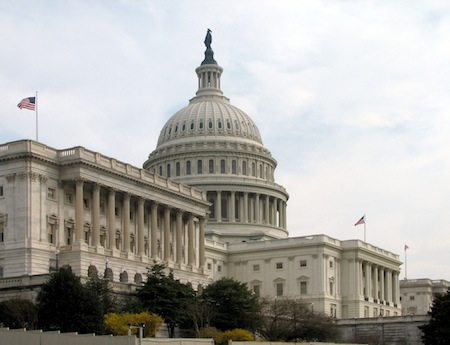FCC Gets Congressional Caution on Set-Top Proposal

The smarter way to stay on top of broadcasting and cable industry. Sign up below
You are now subscribed
Your newsletter sign-up was successful
A couple dozen members of Congress led by Democratic House Member Tony Cárdenas of California have written FCC Chairman Tom Wheeler asking him to insure that his set-top proposal protects copyrights, contractual channel placements and privacy.
They clearly had issues with the proposal, and the letters' tone was clearly a flashing yellow light, if short of a red one. "I am hopeful that the FCC Commissioners will consider and address the concerns raised in the letter as they examine Chairman Wheeler’s proposal," said Cárdenas. The FCC is scheduled to vote on the proposal Feb. 18.
While they said they encourage competition, "too much government regulation can become burdensome and hurt the innovation it attempts to foster," they wrote. The proposal, to "unlock" cable, telco and satellite set-top content and data and share it with third-party navigation devices that wed it to online content, has been billed as a way to boost price competition in the set-top market and innovation in the third-party device market.
The legislators, many of them minorities, said they wanted to make sure minority and independent programmers can reach as many people as possible with high-value content. Some minority programmers argue that the proposal will devalue their content and the economics of keeping it high-value.
The legislators had clearly heard from some of those. "We have been approached by many companies, organizations and constituents that would be directly affected by this proposal," they wrote Wheeler, cautioning that the FCC needed to protect the "carefully negotiated placement, scheduling, distribution and advertising agreements" independent programmers had struck. "Any proposal must respect existing contracts so that independent and minority programmers can control the presentation of their content and secure funding essential for diverse voices to thrive in the marketplace."
Fans of the proposal are more focused on the independent voices that do not have those network agreements and want to have their online content side-by-side with traditional cable nets to boost their potential audience.
They said that, in addition, any new proposal should maintain consumer privacy safeguards. The FCC is proposing to make adherence to cable privacy rules a quid pro quo for access to the set-top data since the same cable regs don't apply to tech and edge companies.
The smarter way to stay on top of broadcasting and cable industry. Sign up below
Contributing editor John Eggerton has been an editor and/or writer on media regulation, legislation and policy for over four decades, including covering the FCC, FTC, Congress, the major media trade associations, and the federal courts. In addition to Multichannel News and Broadcasting + Cable, his work has appeared in Radio World, TV Technology, TV Fax, This Week in Consumer Electronics, Variety and the Encyclopedia Britannica.

